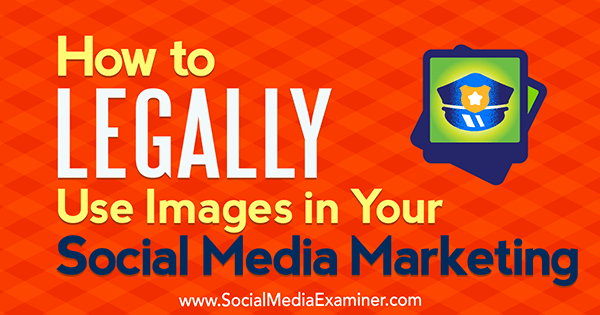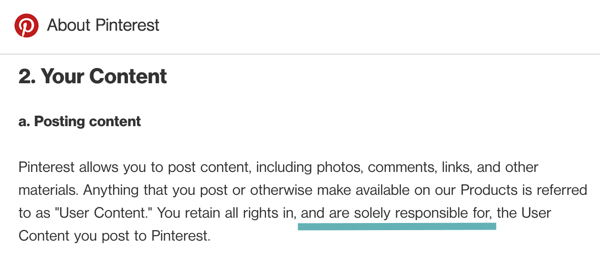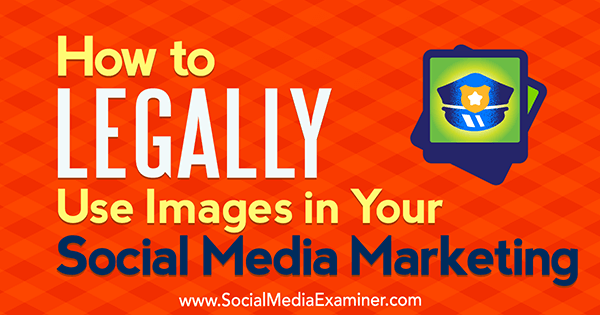Author: Sarah Kornblet / Source: socialmediaexaminer.com Do you share images in your social media marketing? Wondering if you’re violating
Do you share images in your social media marketing?
Wondering if you’re violating copyright laws?
With a bit of information, you can learn to protect yourself and your business from a copyright infringement lawsuit.
In this article, you’ll discover five tips to help you use images correctly (and legally) on social media.

#1: Understand Copyright Basics
You don’t need to read a law book, but knowing a few copyright basics will go a long way in helping you use images legally (and protecting your own content). So much misinformation about copyright is out there; however, understanding these key points will put you ahead of the game.
- Copyright is a designation given to creative works that you put into the world in a “fixed form,” meaning the minute you type that blog post or put that photo on Instagram, you’re protected.
- Copyright covers a variety of categories, including literary works (books, poetry, articles); performing arts (music, lyrics); visual arts (artwork, jewelry, photos); digital content (websites, blogs); motion pictures (movies, television, videos); and photographs (commercial, personal, portrait).
- Copyright protection is automatic, meaning the work is presumed to be yours. Although many people use the copyright symbol © as a way of saying, “Hey, this stuff is all mine!”, the symbol is no longer legally required.
- With this protection, you get certain rights. For example, no one else can use your work without permission.

- If you want the ability to sue for copyright infringement (if someone steals your work), you need to register the work with the U.S. Copyright Office within 90 days of publication.
So, for example, if you publish content on February 1 and infringement occurs on March 1, you still have until the end of April to register and be able to take legal action against the March infringement. However, once that 90 days from publication passes, you would not be able to bring an action against that March infringement.
For an easy way to think about copyright protection, remember this: If you didn’t create it, you may not be able to use it (even if you give the work’s creator credit).
#2: Read the Terms for Your Social Media Platforms
Is it okay to retweet? Sure. Is it okay to repin images on Pinterest? Maybe. Is it okay to repost on Instagram? Sometimes.
Remember that all social media platforms have different rules and take big steps to protect themselves and their users. To know what is or isn’t acceptable for each platform, find a comfortable spot and read each platform’s Terms of Service/Use/Conditions.

For example, on Pinterest, you’re allowed to repin other images on Pinterest (meaning, you can’t copy to another platform). However, if the image you’re repinning appears on Pinterest without permission from the author, you could be committing copyright infringement because you’re “solely responsible” for anything you post.
What this looks like: Sally posts an awesome picture of chocolate cake on her blog, but she isn’t on Pinterest. Emily really likes the picture and posts it on her Pinterest account with her recipe. Jennifer repins it on her board of desserts. Both Emily and Jennifer may be liable to Sally for copyright infringement, even though Jennifer didn’t know she was doing it.
What to do? Check the source of the original pin to make sure the author and that picture are on Pinterest.
Remember, take time to read the terms for each platform and understand what’s allowed and what isn’t. Doing this could save you…

COMMENTS